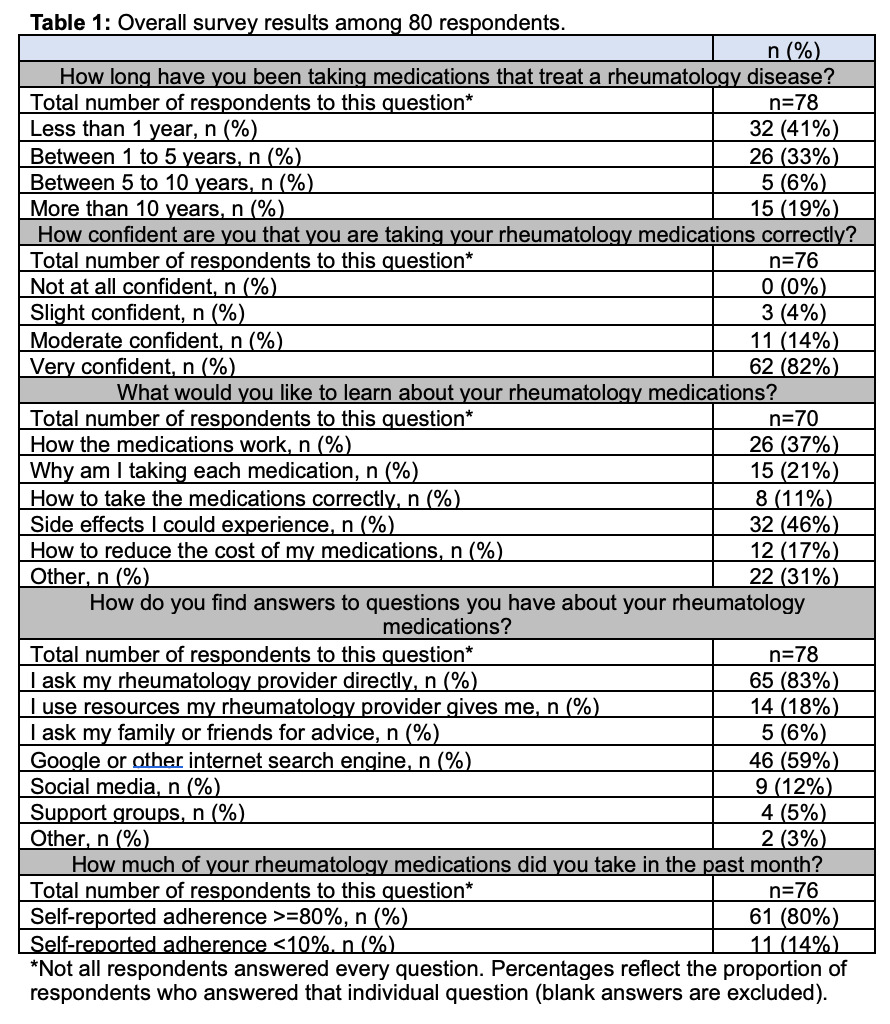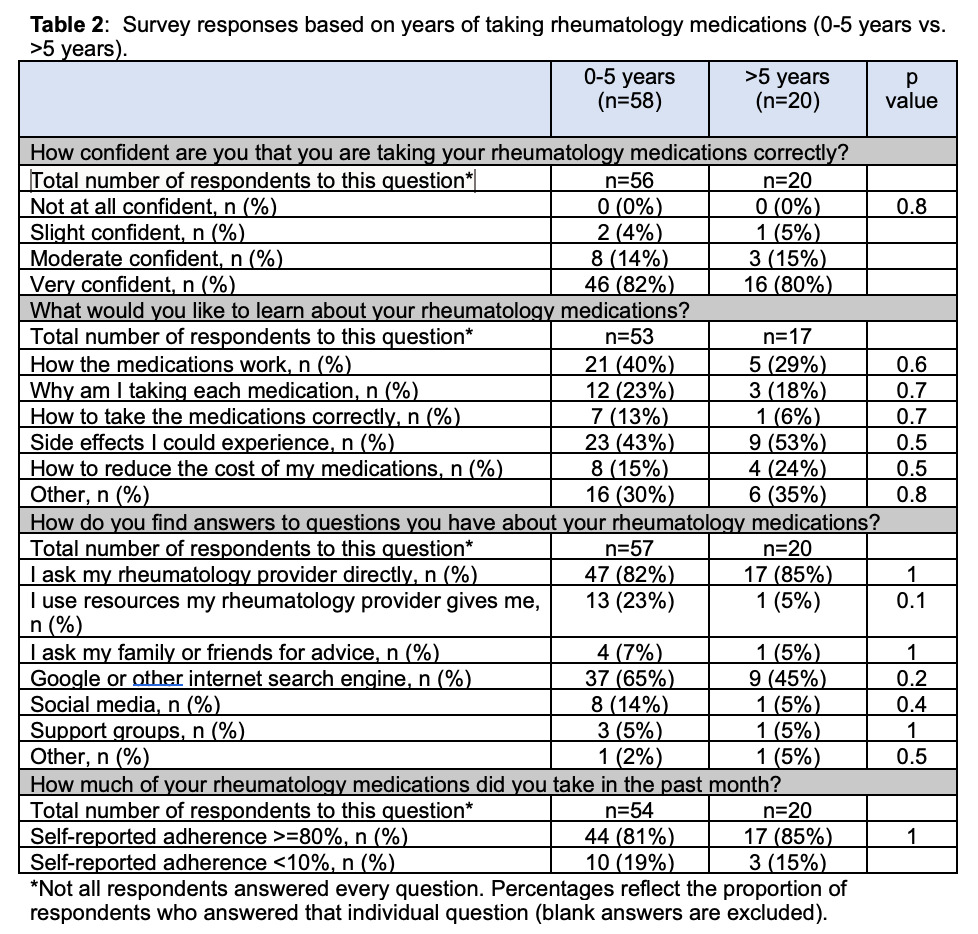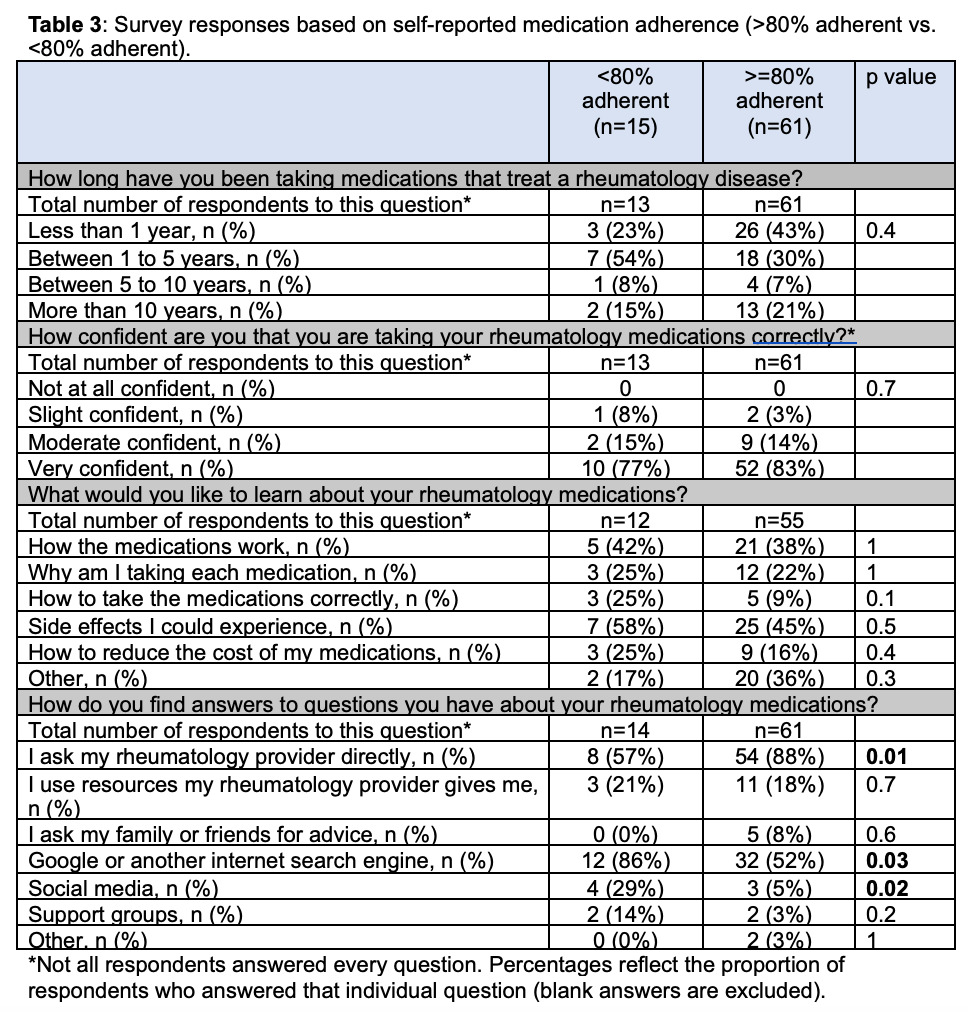Session Information
Date: Monday, November 13, 2023
Title: (1082–1099) Measures & Measurement of Healthcare Quality Poster I
Session Type: Poster Session B
Session Time: 9:00AM-11:00AM
Background/Purpose: Medication non-adherence remains high among rheumatology patients, yet little is known about adherence barriers faced by patients or interventions that improve adherence. As part of a quality improvement initiative, we aimed to better understand questions rheumatology patients have about their medications, how they seek answers, and factors associated with self-reported medication adherence.
Methods: Patient surveys were administered at a fellows; continuity clinic at periodic intervals between 5/5/2022 – 4/26/2023. The survey consisted of 5 items assessing length of time taking rheumatic medications, self-reported confidence with taking medications correctly, what patients would like to learn about their medications, how patients find answers to questions about their rheumatic medications, and adherence to rheumatic medications over the past month. Survey responses were analyzed to determine differences in patient needs based on their years of experience taking rheumatic medications (0-5 years vs. >5 years) and their self-reported adherence with rheumatic medications (< 80% adherence vs. >=80%). Comparisons were performed with Fisher’s exact test.
Results: Of the 88 surveys that were administered, 80 patients answered at least one question (response rate 91%). Of all respondents, 74% reported taking rheumatic medications for five years or less, 82% reported feeling “very confident” in taking their medications, and 80% reported adherence over the past month (Table 1). The top categories of information that patients wanted to learn about were “side effects I could experience” (46%) and “how the medications work” (37%). To answer questions about rheumatic medications, most respondents “ask [their] rheumatology provider directly” (83%) or turn to “Google or other internet search engine” (59%). There were no significant differences in confidence, questions about medications, or methods of answering questions according to experience taking rheumatic medications (Table 2). Patients reporting non-adherence were significantly less likely than those reporting adherence to ask their provider directly about their rheumatic medications (57% vs. 88%, p=0.01) and more likely to turn to internet searches (86% vs. 52%, p=0.03) and social media (29% vs. 5%, p=0.02) for information (Table 3).
Conclusion: The majority of patients taking rheumatic medications are primarily interested in learning about how their medications work and potential side effects, regardless of how long they have been taking rheumatic medications or how adherent they are to their rheumatic medications. Non-adherent patients are more likely to seek out this information through internet searches and social media, rather than asking their rheumatologist directly. These data are crucial for designing quality improvement initiatives to improve patients’ knowledge and adherence when taking rheumatic medications.
To cite this abstract in AMA style:
Eder L, Sun K, Bracken S, Barr A, Shen J, Cintron D, Maheswaranathan M, Sims C, Apte P, Milne M, Harris N, Leverenz D. A Quality Improvement Project About Medication Adherence to Understand What Questions Rheumatology Patients Have About Their Medications, and How They Answer Them [abstract]. Arthritis Rheumatol. 2023; 75 (suppl 9). https://acrabstracts.org/abstract/a-quality-improvement-project-about-medication-adherence-to-understand-what-questions-rheumatology-patients-have-about-their-medications-and-how-they-answer-them/. Accessed .« Back to ACR Convergence 2023
ACR Meeting Abstracts - https://acrabstracts.org/abstract/a-quality-improvement-project-about-medication-adherence-to-understand-what-questions-rheumatology-patients-have-about-their-medications-and-how-they-answer-them/



